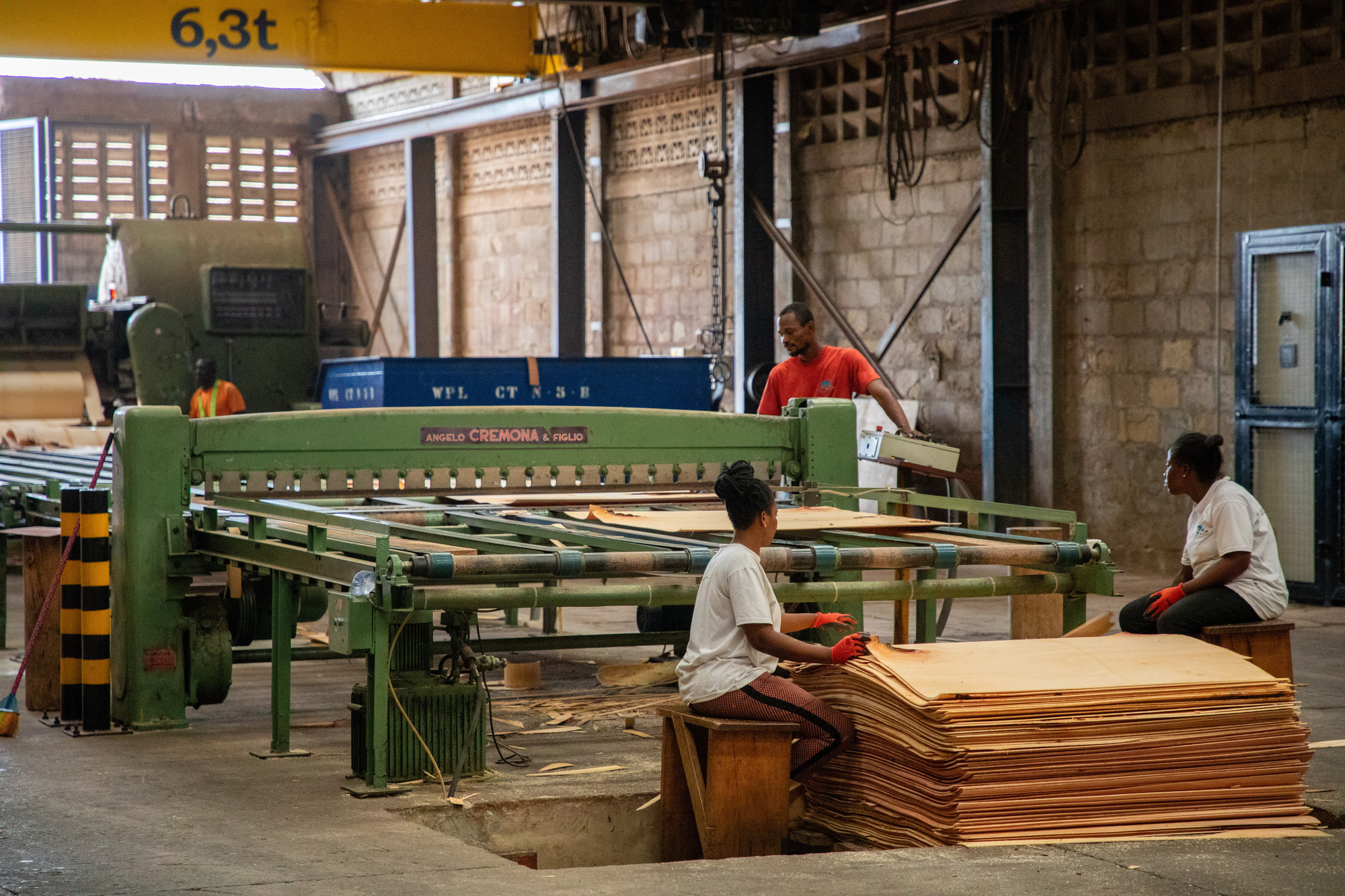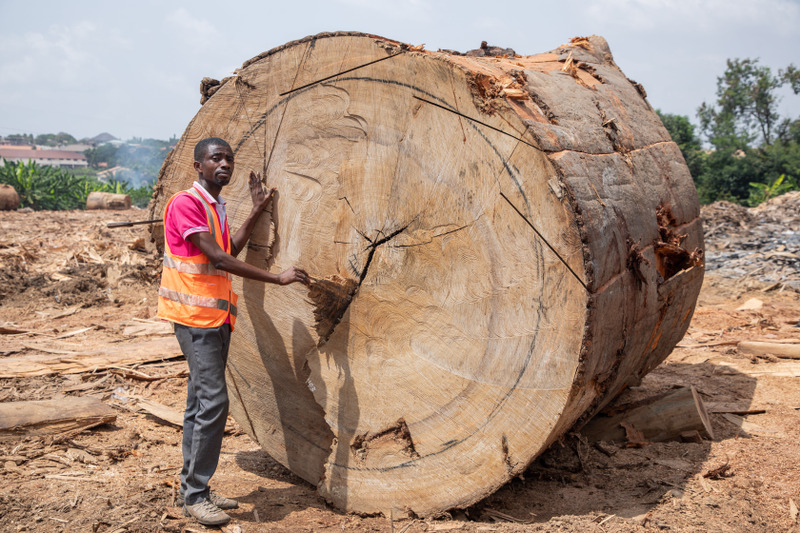GTI: Timber markets in Asia, Africa, and Latin America show signs of turnaround
19 March 2025, Yokohama

Workers at the factory of Wood Pillar Company Limited in Ghana. The February GTI for Ghana indicated continuing improvement in the country’s timber sector. Photo: Peter Zormelo
Global timber markets showed encouraging developments in February 2025 after persistent challenges, according to the latest edition of the Global Timber Index (GTI) Report. The ITTO-supported GTI tracks the performance of the timber sector in diverse pilot countries.
The GTI for Ghana was at 53.3%, above the 50% threshold for the second consecutive month and indicating continued improvements in its timber sector. The index for Thailand stood at 47.1%, with harvesting, production, and domestic orders all showing positive signs despite a decline in export orders. The GTIs for Mexico (47.8%), the Republic of the Congo (45.6%), China (44.1%), Brazil (43.2%), Gabon (34.7%), and Malaysia (20.6%) were also below the 50% threshold in February, indicating an overall decline in their timber sectors. Nevertheless, all GTIs increased in February compared with January, indicating an easing of the downward trends.
Positive signs are evident in some of the GTI sub-indices. Thailand continued to see growth in timber production; Mexico's domestic market improved; in Ghana, the total volume of existing orders was relatively sufficient, providing short-term support for production and business activities. In addition, Chinese enterprises were relatively optimistic about the overall trend of the timber market over the next six months.
However, the GTI-Producers Index, a specialized index for timber production, was at 44.4% in February, and the GTI-Woodbased Panel Index, a specialized index for wood-based panels, stood at 39.1%, indicating that both subsectors declined in February.
Several tropical countries moved in February to increase policy support for their timber markets.
In Thailand, the Ministry of Commerce has announced the simplification of export procedures for the export of wooden products. Except for Siamese Rosewood, which remains banned from export, companies are no longer required to obtain export permits for wooden products. The cancellation of the permit requirement is expected to reduce paperwork and costs for Thai wood traders.
Gabon's transitional president announced the allocation of CFAF 30 billion (USD 50 million) to revive stalled construction projects, a move expected to construction sector demand for timber in the country.
Meanwhile, Brazil’s Chamber of Deputies approved and submitted to the Senate for review a bill stipulating the refund of taxes equivalent to 3% of export revenue for small exporting companies, which will ease the tax burden on some timber exports.
The monthly GTI Report, GTI-Producers Report and GTI-WBP Report are available free at www.itto.int/gti.
Download the latest GTI Report, GTI-Producers Report, and GTI-Woodbased Panel Report.

